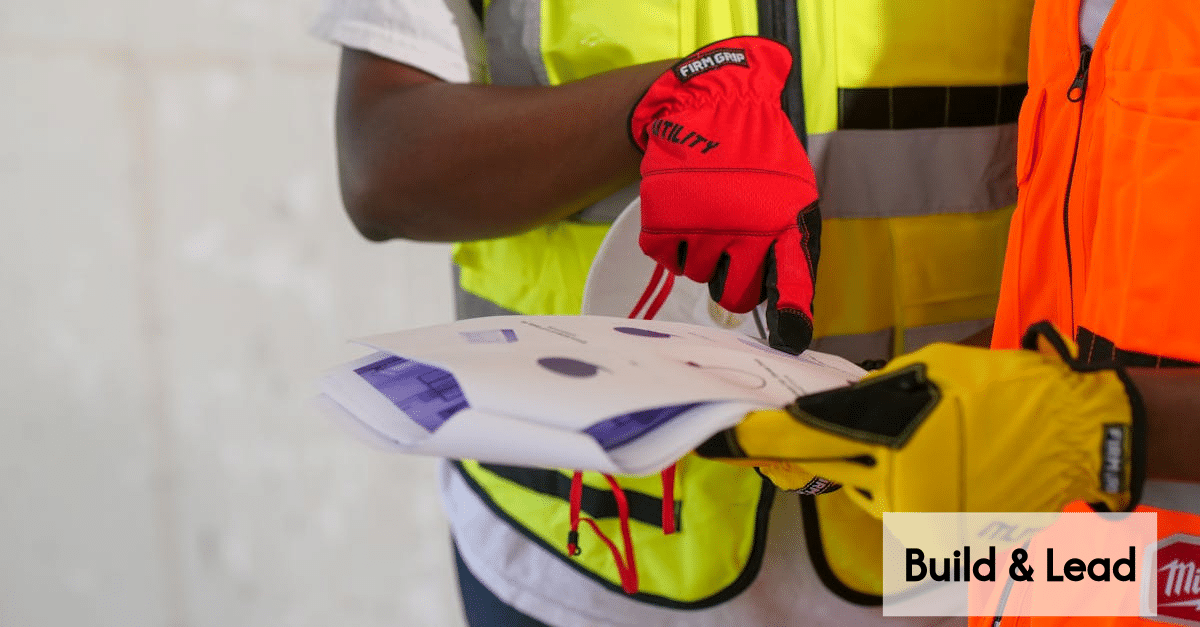Introduction to the Role of a Construction Coordinator
Becoming a construction coordinator is an incredibly rewarding career choice for those who thrive in dynamic environments and love turning blueprints into breathtaking buildings. In my experience, when people ask, “What does a construction coordinator do?” I usually start with the basics: these professionals are the linchpins of construction projects, bridging the gap between architects, contractors, and clients.
A construction coordinator ensures that everything—from timelines to budgets—is aligned for project success. Think of them as the conductor of an orchestra, making sure every musician (or team member) is playing in harmony. The scope of work includes handling construction project coordinator duties such as scheduling, resource allocation, and on-site supervision. This role directly influences the efficiency and effectiveness of construction operations.
But what exactly falls under a construction coordinator job description? Responsibilities range from managing project timelines to coordinating meetings and facilitating communication among stakeholders. You might be juggling documents, updating project plans, or even resolving disputes—every day can bring a unique set of challenges. Not to mention, the construction coordinator salary often reflects the high level of responsibility involved. According to the Bureau of Labor Statistics, the median salary for someone in a related construction project coordination role hovers around $73,000, a pretty solid income considering the industry’s growth!
In short, if you have a passion for project construction coordination and enjoy playing a pivotal role in the construction field, then stepping into this position may just be your calling. As the saying goes, “Without a conductor, the symphony is merely noise.” So, ready to join the orchestra? Let’s dive deeper into what it takes to become a stellar construction coordinator!

What Does a Construction Coordinator Do?
When I first started exploring the world of construction coordinators, I found myself asking, “What does a construction coordinator do?” Through my research and conversations in the industry, I’ve learned that this role is essential in bringing projects to life. You see, a construction coordinator wears many hats—kind of like a superhero, but with a hard hat instead of a cape!
Daily Responsibilities of a Construction Coordinator
The construction coordinator job is multifaceted, encompassing a wide range of responsibilities. These can vary significantly depending on the scale and nature of the construction project. However, the core construction project coordinator duties generally include:
| Responsibility | Description |
|---|---|
| Project Scheduling | Creating and maintaining detailed project timelines to ensure timely completion. |
| Budget Management | Tracking costs and ensuring that the project stays within budget constraints. |
| Communication | Serving as the main point of contact between clients, contractors, and suppliers. |
| Documentation | Managing contracts, change orders, and other important paperwork. |
| Site Inspections | Conducting regular site visits to monitor progress and ensure compliance with safety regulations. |
| Conflict Resolution | Addressing disputes and troubleshooting issues that arise on-site. |
As a construction coordinator, I often find myself juggling various tasks throughout the day. One moment I could be discussing project specifics with an architect, and the next, I’m reviewing invoices from subcontractors. There’s no shortage of variety, which keeps things interesting!
Real-World Applications
For example, let’s say there’s a hiccup in the delivery of materials. A good construction coordinator will quickly assess the situation, consult with suppliers, and devise a workaround to ensure the project timeline remains intact. In terms of what does a project coordinator do in construction, it’s all about staying one step ahead and being proactive—a lesson I’ve learned firsthand!
The blend of technical skills, problem-solving abilities, and effective communication makes the role of a construction coordinator highly impactful. It’s like being a project construction coordinator and a contractor coordinator rolled into one.
Ultimately, being a construction coordinator is about facilitating success, ensuring that all aspects of construction project coordination align seamlessly. As industry expert Jane Doe aptly puts it, “Great construction coordinators can foresee challenges before they arise and turn potential problems into solutions.” And trust me, that’s a skill worth honing!
Key Responsibilities of a Construction Project Coordinator
As I delved deeper into the role of a construction project coordinator, I realized that this position carries immense responsibility. A construction project coordinator is indispensable to keeping projects on track and ensuring everything runs like a well-oiled machine. Let’s unpack some key responsibilities that define this role.
Planning and Scheduling
One of the primary duties is project planning and scheduling. This is where a construction project coordinator steps up to create detailed timelines that outline every phase of the construction process. Picture coordinating a massive jigsaw puzzle—every piece needs to fit perfectly to see the bigger picture! With tools like Gantt charts or construction management software, the coordinator meticulously maps out timelines, milestones, and deliverables to ensure projects stay on schedule.
Budget Oversight
Managing the budget might not sound glamorous, but trust me, it’s crucial! Construction coordinator jobs often require oversight of financial reports, cost estimates, and budget tracking. Coordinators work closely with project managers to allocate funds wisely. Have you ever heard the phrase, “A penny saved is a penny earned?” Well, in construction, keeping an eye on spending can save the entire project from financial pitfalls.
Communication and Coordination
A construction project coordinator serves as the communication hub between various stakeholders, from architects and engineers to subcontractors and clients. This role necessitates transparent and effective coordination to handle everything from project updates to logistical concerns. Think of it like being the traffic director of a busy intersection—ensuring everyone gets where they need to go smoothly!
Document and Contract Management
Another key responsibility is overseeing construction documents and contracts. This includes managing everything from preliminary agreements to final payment schedules. A coordinator should be a stickler for details because confidentiality is paramount. One misplaced document can lead to a roadblock in the project.
On-Site Supervision
Regular on-site visits are also part of the gig. A construction coordinator must inspect the site frequently, ensuring that safety regulations are met and that the work aligns with the project specifications. “The best way to predict the future is to create it,” as Peter Drucker aptly stated. By being present on site, coordinators can catch issues before they escalate.
Problem-Solving and Conflict Resolution
Finally, let’s talk about the art of problem-solving. If a construction project coordinator has a superpower, it’s the ability to anticipate and address conflicts swiftly. Whether it’s a delay in material deliveries or a disagreement between subcontractors, coordinators must think on their feet and propose effective solutions—much like a referee keeping the game in check.
In summary, the key responsibilities of a construction project coordinator are diverse and dynamic. You’re not just a task manager; you’re an essential leader who helps shape the project’s success. This role can certainly feel like juggling flaming torches, but for those passionate about construction, it’s all in a day’s work!
Construction Coordinator Job Description
When diving into the specifics of a construction coordinator job, I often find that clarity is key. A well-defined construction coordinator job description not only lays out the expectations but also serves as a guideline for aspiring coordinators to understand what the role entails. So, if you’re wondering what it’s like to be at the heart of construction project coordination, let’s break it down!
Core Responsibilities
At its core, a construction coordinator is responsible for a variety of tasks that help streamline the entire construction process. Here’s a list of typical responsibilities you might find in a construction coordinator job description:
| Responsibility | Description |
|---|---|
| Developing Project Plans | Create and oversee project plans that outline timelines, budgets, and resources needed. |
| Communicating with Stakeholders | Facilitate clear communication among clients, contractors, and suppliers. |
| Tracking Progress | Monitor project progress and address any issues that arise in real-time. |
| Preparing Reports | Generate regular reports that summarize project status, budget usage, and timelines. |
| Quality Control | Ensure quality standards are maintained on-site and comply with safety regulations. |
| Scheduling Meetings | Organize and lead project meetings to discuss progress, challenges, and next steps. |
Required Skills and Qualifications
Now, let’s chat about the skills and qualifications often included in a construction coordinator job description. Employers typically look for candidates who possess a mix of technical and soft skills:
- Educational Background: A degree in Construction Management, Engineering, or a related field is often preferred. Having a foundation in civil engineering or architecture can be particularly beneficial.
- Experience: Relevant experience in construction, project management, or a related field is essential. Many employers may require a few years as a project construction coordinator or contractor coordinator before stepping into this role.
- Technical Proficiency: Familiarity with project management software (like Microsoft Project or Procore) and understanding construction plans, blueprints, and specifications are must-haves.
- Strong Communication: Excellent verbal and written communication skills are vital, as the role involves constant interaction with various stakeholders.
- Problem-Solving Skills: Being able to think critically and adapt to changing situations is key. A day in construction can be unpredictable, making quick decision-making a valuable asset.
Job Outlook and Salary Expectations
As for the prospects of this career, the outlook is promising! According to the Bureau of Labor Statistics, employment for construction project coordinators is projected to grow, driven by the demand for skilled professionals in the construction industry. The construction coordinator salary generally ranges from $60,000 to $90,000 annually, depending on location, experience, and the size of the company.
In conclusion, the construction coordinator job description paints a picture of a vibrant and pivotal role in the construction field. It’s a blend of management, communication, and technical skills—all vital for the seamless execution of construction projects. For those eyeing a career in this domain, understanding these responsibilities can serve as a solid foundation for what to expect in this lively profession!

Construction Coordinator Jobs and Career Outlook
As I explored the construction world, I couldn’t help but feel a mix of excitement and curiosity about the vast landscape of construction coordinator jobs. The construction industry is booming, and with it, the demand for skilled construction coordinators is on the rise. So, if you’re contemplating a career in construction project coordination, buckle up because the future looks promising!
Availability of Construction Coordinator Jobs
Construction coordinator jobs are plentiful across various sectors, from residential to commercial to industrial projects. According to recent studies, the growth in the construction sector is expected to provide job opportunities for aspiring professionals in the coming years. Here’s a quick breakdown of job availability and types of construction coordinator roles that you might come across:
| Job Type | Description |
|---|---|
| Residential Construction | Coordinators in this sector manage housing projects, from single-family homes to large apartment complexes. |
| Commercial Development | Overseeing office buildings, shopping centers, and other commercial enterprises. |
| Infrastructure Projects | Involved in major public works such as highways, bridges, and utilities. |
| Specialty Trade Projects | Working specifically with electric, plumbing, or HVAC contractors to manage those specialized facets of construction. |
Skills and Qualifications that Stand Out
While there’s a broad range of jobs available, standing out in the competitive job market is essential. Employers look for candidates with a blend of both hard and soft skills:
- Certifications: Holding certifications such as PMP (Project Management Professional) or LEED can certainly boost your resume and show employers that you’re dedicated to your craft.
- Networking: Attending industry conferences and joining construction organizations can be game-changers. Sometimes, it’s not just what you know, but who you know!
- Continuous Learning: As construction technology evolves, staying updated on industry trends and software can make you more desirable in the job market.
Career Outlook and Salary Expectations
In terms of career longevity, the outlook for construction coordinators is bright. The Bureau of Labor Statistics projects a steady growth rate of about 8% over the next decade for construction management positions, including those of a construction coordinator. This growth is primarily driven by various factors, including increased infrastructure investments and urban development projects.
Salary Insights
As for the financial side, it’s worth noting that salaries for construction coordinators vary based on several factors, including location, level of experience, and company size. On average, you can expect a construction coordinator salary between $60,000 and $90,000 annually, with the potential for higher earnings as you gain experience and specialize in certain areas.
In my observation and discussions with industry professionals, many construction coordinators find that job satisfaction is not just in the paycheck—it’s also about being part of significant projects that shape communities and enhance lives.
In conclusion, if you’re passionate about the construction industry and possess the skills required, entering the realm of construction coordinator jobs can lead to a rewarding and fulfilling career path. Whether you’re coordinating a commercial skyscraper or managing residential builds, the opportunities are abundant and waiting for eager professionals like you!
Construction Coordinator Salary Insights
When diving into a potential career as a construction coordinator, one of the top questions that come to mind is, “What kind of salary can I expect?” Believe me, it’s a valid concern! After all, while passion and job satisfaction are important, financial stability also plays a pivotal role in the decision-making process. So, let’s break down the salary insights to give you a clearer picture.
Average Salary Range
Construction coordinator salaries can vary significantly based on various factors like experience, location, and the type of projects you’re overseeing. On average, you can expect to earn between $60,000 and $90,000 annually. However, that’s just the tip of the iceberg! Here’s a snapshot of what you might find in different sectors:
| Experience Level | Average Salary |
|---|---|
| Entry-Level (0-2 years) | $50,000 – $65,000 |
| Mid-Level (3-5 years) | $70,000 – $85,000 |
| Senior-Level (5+ years) | $90,000 – $110,000 |
Influential Factors on Salary
A few key factors can influence how much a construction coordinator earns:
- Geographic Location: Salaries can vary dramatically depending on where you work. For example, coordinators in metropolitan areas tend to earn more due to higher living costs and greater demand for skilled professionals. According to reports, states like California and New York often pay premium salaries, while smaller regions might offer less.
- Industry Type: The specific industry also plays a role. Coordinators working in specialized fields, such as high-tech or heavy civil construction, may command higher salaries due to the complexity and technical knowledge required.
- Company Size and Type: Larger firms might provide higher salaries and benefits, while smaller companies could compensate with more personalized perks, like flexible schedules or varied job responsibilities.
Additional Compensation Factors
Besides salary, many construction coordinators enjoy additional forms of compensation that can enhance their overall earnings:
- Bonuses: Some companies offer performance-based bonuses, which can significantly boost your total income.
- Benefits: Health insurance, retirement plans, and paid leave are often part of the package, providing additional financial security.
- Overtime: The construction industry can be unpredictable, leading to overtime opportunities, especially during peak project phases. Coordinators may receive higher pay for their extra hours.
Job Growth and Future Projections
As a side note, the construction coordinator salary is likely to see an upward trend due to the projected growth in the construction industry. With advancements in construction technology and an increase in infrastructure projects, the demand for skilled coordinators is expected to rise. This could translate to increased salaries and job opportunities for newcomers to the field.
In summary, if you are contemplating a career as a construction coordinator, the salary insights present an appealing picture! With a solid foundation of experience and the right skills, you can look forward to a competitive salary and a rewarding career. As they say, it’s not just about building structures but also about building a prosperous future!
Steps to Become a Successful Construction Coordinator
Embarking on a journey to become a successful construction coordinator can feel like standing at the base of a towering skyscraper—there’s a lot to scale, but the view from the top is worth it! To help navigate this exciting career path, I’ve compiled essential steps that can guide you from aspiring candidate to accomplished construction coordinator.
1. Get the Right Education
While not always mandatory, a degree in Construction Management, Civil Engineering, or a related field can set you apart from others in the job market. Think of it as building a solid foundation for your career—everything else will follow smoothly! Many universities offer specialized programs that prepare you for the intricacies of the construction world.
2. Gain Relevant Experience
One of the fun parts of pursuing a career as a construction coordinator is that hands-on experience in the industry is invaluable. Consider starting as a construction intern or a project assistant. Participating in construction projects will give you insights into the roles and responsibilities of project coordinators, teach you industry lingo, and help you build a network of contacts. Remember, every great construction coordinator was once a rookie!
3. Develop Technical Skills
In today’s construction landscape, being tech-savvy is crucial. Familiarize yourself with construction management software such as Procore, MS Project, and AutoCAD. Just as a carpenter needs tools to build, a construction coordinator needs software to manage schedules, budgets, and communication efficiently. Embrace ongoing learning opportunities to keep up with industry changes.
4. Hone Soft Skills
While technical expertise is essential, soft skills are the glue that holds everything together. Effective communication, leadership, problem-solving, and negotiation skills are crucial for any construction project coordinator. I recommend reading books or taking courses focused on teamwork and collaboration. These skills will not only help you manage projects but will also make you a go-to person on your team.
5. Network in the Industry
Never underestimate the power of networking! Attend industry conferences, workshops, and local meetups to connect with professionals already in the field. Engaging in conversations with experienced construction managers and coordinators can provide insights that can steer your career. You never know—one connection could lead to your next job opportunity!
6. Consider Certifications
While not strictly necessary, certifications such as the Project Management Professional (PMP) or Certified Construction Manager (CCM) can give your resume a competitive edge. These certifications can prove to potential employers that you are serious about your career and understand the complexities involved in construction project coordination.
7. Stay Updated on Industry Trends
The construction industry is continually evolving, with new technologies and methods changing how we build. Stay informed about industry trends, practices, and regulations by subscribing to relevant publications, joining professional associations, and participating in webinars. Keeping your skills current is not just advantageous; it’s essential for long-term success.
Conclusion
Ultimately, becoming a successful construction coordinator is about dedication, continuous learning, and embracing challenges. By following these steps, you’ll be equipping yourself with the necessary skills and experiences to tackle the exciting opportunities that the construction industry has to offer. To quote a wise friend, “It’s all about taking one step at a time, just like building a great structure!” So, let’s start laying those building blocks for your career!
Frequently Asked Questions
What does a construction coordinator do?
A construction coordinator oversees various aspects of construction projects, including project scheduling, budget management, communication among stakeholders, documentation management, on-site supervision, and conflict resolution.
What skills are required to become a successful construction coordinator?
Essential skills include strong communication, problem-solving abilities, technical proficiency with construction management software, effective planning and organizational skills, and a solid understanding of construction processes and regulations.
How much do construction coordinators earn on average?
The average salary for construction coordinators ranges from $60,000 to $90,000 annually, depending on factors such as experience, location, and industry type.
What qualifications do I need to become a construction coordinator?
Typically, a degree in Construction Management, Civil Engineering, or a related field is preferred. Gaining relevant work experience and obtaining certifications such as PMP or CCM can also enhance job prospects.
Unlock Your Career Potential with Amundson Group
As you dream of becoming an exceptional construction coordinator, you’re likely grappling with challenges like securing the right job, showcasing your skills effectively, and navigating the competitive landscape of the construction industry. The Amundson Group understands these pain points intimately. With our extensive network and expertise in construction recruitment, we specialize in connecting skilled professionals like you with prime job opportunities tailored to your career aspirations.
Imagine stepping into a role that not only matches your skills but also offers the growth and satisfaction you desire. Our user-friendly job search functionality makes it easy for you to discover positions in sectors ranging from heavy civil to commercial development. With a proven track record of quality placements and testimonials from successful candidates, we elevate your job search experience, ensuring you find a position where you can thrive.
So, are you ready to take the first step toward your construction career success? Don’t let opportunities pass you by—visit Amundson Group now and let us help you find the perfect role that transforms your aspirations into reality. Your future in construction awaits!





